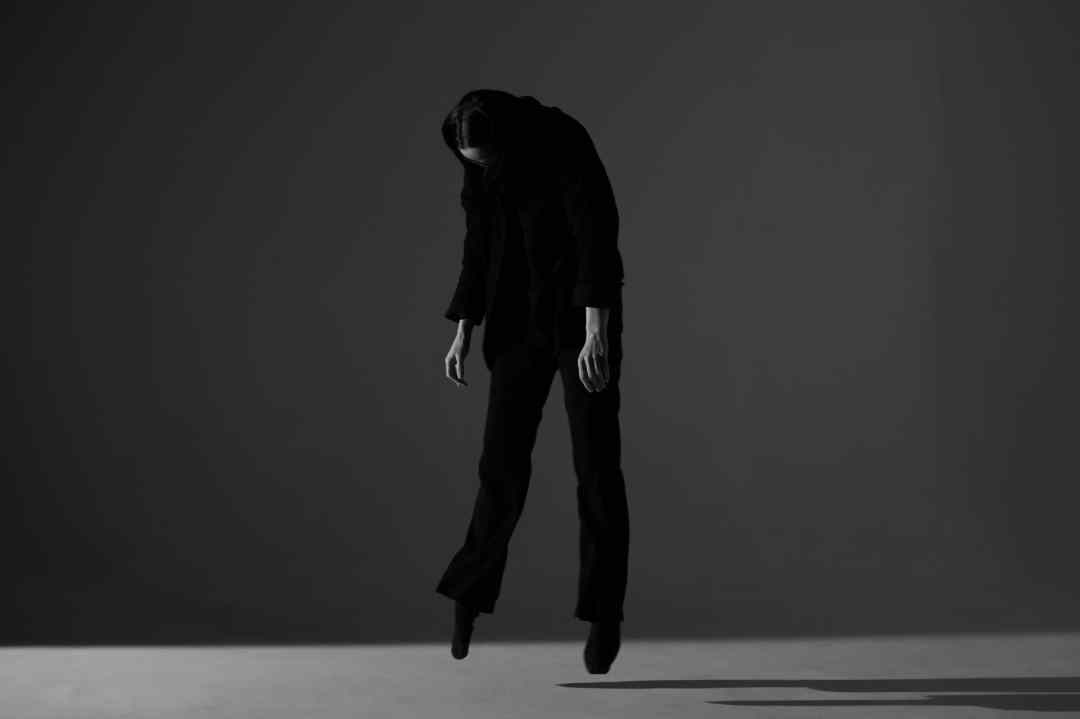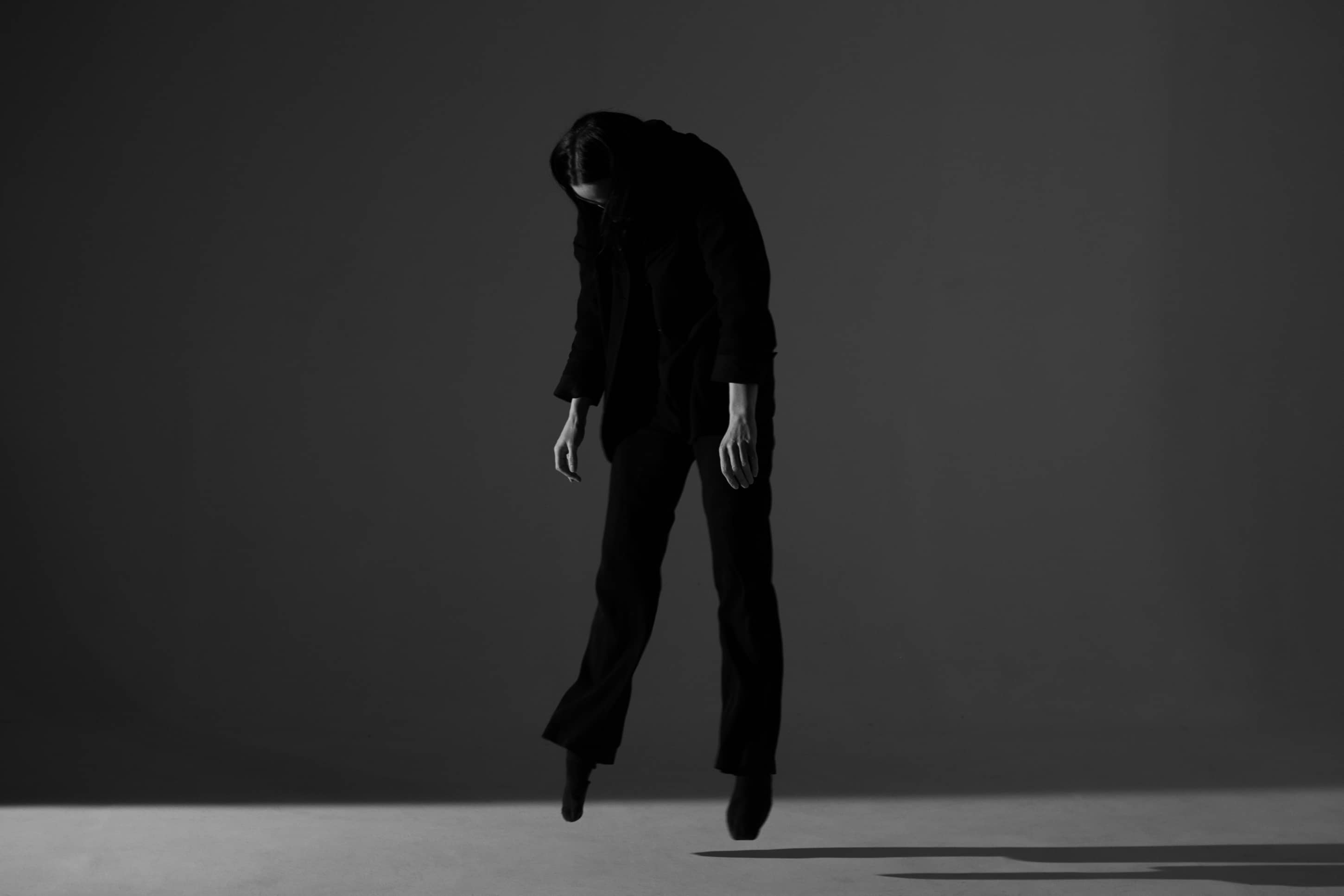It took a moment to realise Keeley Forsyth was there. There were already three musicians, faint figures on a dark stage, wreathed in dry ice. And then, to their side, one became aware of a patch of darkness that was a little darker than the rest, and which seemed to be moving. Even when she moved into the slightly less gloomy part of the stage, Forsyth remained hidden: this was a show of startling unease and intensity. ‘Well, she’s spectacular,’ one chap ahead of me said to his friend as they filed down the stairs at the end. ‘Not sure I could manage more than an hour of it, though.’
Forsyth is best known as an actor, in the kind of things everyone watches on a Sunday night (she could have competed for either side in the Heartbeat vs Peak Practice special edition of Family Fortunes on which she appeared), but when she started releasing music a couple of years ago it was certainly not with the intention of providing accompaniment to scenes of rural policing or medicine in bygone ages. Her two brief albums so far – Debris two years ago, Limbs this year – are stark, unnerving things, less collections of songs than rookeries in bare trees. For an easier signifier of how bleak it was live, there was a harmonium player on stage. The last time I saw a harmonium on a stage, it was being played by the late German chanteuse Nico, as she intoned her songs about unending misery. The harmonium is the ship-trapped-in-ice of musical instruments, wheezing and creaking and cracking. Of course it suits music that sweats unease.
Forsyth’s two albums are stark, unnerving things – less collections of songs than rookeries in bare trees
It wasn’t a gig so much as a performance piece; when thinking of comparisons, they all came from horror films, not other musicians. Throughout, Forsyth’s hair hung over her face, obscuring her features, and she slithered and contorted in the gloom, disconcertingly like Sadako, the demonic girl who crawls out of the TV at the end of the Japanese film Ringu. Her voice strayed between accents, at times settling on a Mitteleuropean straight of a Universal horror movie from the 1930s: ‘Vellcome to Castle Dracula! Enter of your own free will!’ And the whole thing – the weird, dark, droning intensity – was like one of the cult gatherings from Netflix’s current horror hit Archive 81.
Her voice was remarkable: deep and sonorous, with a vibrato that didn’t overwhelm the songs so much as make them shapeshift. It’s strange music, but I wouldn’t say it’s difficult – there’s real beauty in it, albeit a very dark, rainswept beauty, like being caught on the moors in a storm. It also depends on complete immersion – perhaps the reason for the darkness, for the minute you break a spell like this it is lost for ever.
More musically jovial was The Coral’s visit to London, part of a tour on which they are playing their debut album in full for its 20th anniversary. Listening to that record now, it seems like something of a miracle: a group of lads from the Wirral, who – barely out of their teens – made a fantastical record that seemed like an unforced regurgitation of everything they had ever liked. That’s more common now – streaming has opened up all of musical history for artists to plunder – but at the time they seemed like emissaries from another musical dimension.
So the first 40 minutes of their set motored through songs that encompassed ramshackle nautical-themed psychedelia (‘Spanish Main’), glorious beaty pop (the sublime ‘Dreaming of You’), dub reggae (‘Shadows Fall’), folk pop (‘Simon Diamond’). Once that was done, they motored through the rest of their career in a scant nine songs. And that’s a shame because while The Coral may have become less magpie-minded in their music over the past 20 years (more or less everything they do can be traced back to somewhere between 1960 and 1967), they’ve become really, really good at it: last year’s Coral Island double album was something of a masterpiece. If I am honest, I might even have preferred to hear them play that in full, rather than just pulling out two tracks.
The very loveliest Coral songs – things like ‘Pass It On’ and ‘In the Morning’, which both featured in that second portion of the show – are what I think of as cardigan music. That’s not an insult; quite a few of my favourite bands (Teenage Fanclub, the Jayhawks) make cardigan music. By which I mean, like cardigans, you tend not to give the songs a second thought because they are so apparently unremarkable. And then, as when you put on a comfy old cardie, you think: why do I not wear this every single day of the week? It’s lovely! ‘Pass It On’, for example, is a song so simple and well-made and gorgeous I would defy anyone who likes guitars and melodies not to adore it.







Comments